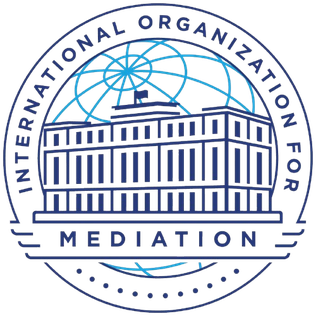ENA - ENA English
Headlines
EU Reaffirms Commitment to Unlocking Africa’s Renewable Energy, Regional Trade
Jun 30, 2025 212
Addis Ababa, June 30, 2025 (ENA) --- The European Union has reaffirmed its commitment to working alongside African institutions in strengthening regulatory frameworks and unlocking the potential of renewable energy and regional energy trade. Opening the African Single Electricity Market (AfSEM) High-level Technical meeting today, Head of Policy and Cooperation at the EU delegation to the African Union Gianluca Azzoni commended the coordination among AU energy institutions, regional economic communities, power pools, regional regulators and member states. The European Union is delighted to be among the key partners in this journey, as set out in the EU Global Gateway strategy, he said, adding “we support investment in energy transmission and generation infrastructure, as well as energy access at national and regional levels through the Africa -Europe Green Energy Initiative.” “We are committed to working alongside African institutions in removing investment barriers, strengthening regulatory frameworks and unlocking the potential of renewable energy and regional energy trade,” he stated. As AfSEM transitions from design to full scale implementation, we encourage member states and regional institutions to maintain momentum, foster deeper collaboration and fully integrate AfSEM principles into national and regional planning frameworks, he said. African Development Bank PESR-Energy Financial Solutions, Policy and Regulation Director Wale Shonibare said for his part that electricity trading allows countries to access cheaper, cleaner sources of supply and improve system reliability. AfDB plays a crucial role in deploying innovative de-risking instruments, he affirmed “We will continue to leverage and expand various de-risking tools, be it partial risk guarantees, partial credit guarantees, or specialized blended finance instruments such as the Sustainable Energy Fund for Africa.” Noting that no single institution can do this alone, he stressed the need to deepen collaboration with other multilateral development banks, bilateral partners, private and finances, among others. AUDA-NEPAD Energy Principal Program officer Tichakunda Simbini on his part said that the central African Power pool, and the Southern and the Eastern power pool are going to be key for generating power that will be traded between the power pools. He called on all partners to make a concerted effort to make sure that at least those regional power pools are operational by 2030 in accordance with the timeline of the AfSEM. AUC Infrastructure and Energy Director Kamugisha Kazaura said today marks a pivotal moment in a collective pursuit to transform Africa's energy landscape. “Today is an opportunity for us to lay institutional and operational foundations for the implementation of a unified Africa electricity market, which will deliver clean, reliable as well as affordable electricity for the continent.” He also commended the technical and financial support, which has been extended by the European Union from the inception of the program in 2015 and through the work which was carried out through the Global technical assistance facility. AfSEM is designed to bring greater energy security, sustainability, and competitiveness to the Africa Union Member States.
Ethiopia Showcases Reform Leadership, Strengthens Strategic Partnerships at AIIB’s 10th Annual Meeting
Jun 30, 2025 206
Addis Ababa June 30, 2025 (ENA) -- Ethiopia’s Minister of Finance and Vice Chair of the Board of Governors of the Asian Infrastructure Investment Bank (AIIB) for the 2024/25 term, Ahmed Shide successfully concluded his participation in the Bank’s 10th Annual Meeting, held from June 24–26, 2025, in Beijing, China. The minister played a prominent role at this milestone gathering, which brought together high-level government and institutional leaders from across AIIB’s global membership. Ahmed delivered a keynote address during the opening ceremony, which was opened by Premier Li Qiang of the People’s Republic of China, where he presented Ethiopia’s reform experience and development vision. In his address, the Minister underscored Ethiopia’s transformation under the visionary leadership of Prime Minister Abiy Ahmed, emphasizing the progress made through the Homegrown Economic Reform Agenda. This nationally led initiative focuses on restoring macroeconomic stability, revitalizing private sector investment, improving governance, and positioning Ethiopia as a resilient and forward-looking economy. He also reaffirmed Ethiopia’s strong commitment to climate action and environmental stewardship through the Green Legacy Initiative, a flagship program personally championed by the Prime Minister. The Minister framed both initiatives as evidence of Ethiopia’s leadership in forging inclusive, climate-smart, and homegrown solutions to shared global challenges. As Vice Chair of the AIIB Annual Meeting, Minister Ahmed Shide moderated the Governors’ Business Roundtable, which focused on fostering sustainable connectivity and infrastructure development across regions. He also played a key role in the election of Zou Jiayi as the next President of the AIIB, extending Ethiopia’s congratulations and expressing confidence in her leadership to guide the institution into its next phase of impact. In his bilateral meeting with Jin Liqun, the outgoing AIIB President, Minister Ahmed commended his decade of service in building AIIB into a globally respected institution. Discussions touched on avenues to strengthen AIIB’s engagement in Ethiopia, particularly in sectors such as transport, energy, and municipal infrastructure. On the sidelines of the Annual Meeting, Ahmed Shide held a series of strategic bilateral discussions with leaders of key financial institutions and development partners, including with Lan Fo’an, Chair of the AIIB Board of Governors and Minister of Finance of the People’s Republic of China, Ali Al Kuwari, Minister of Finance of the State of Qatar. He also conferred with China Development Bank, Export-Import Bank of China and as well as with Industrial and Commercial Bank of China. These exchanges focused on deepening cooperation in development finance, advancing priority infrastructure projects, and exploring innovative instruments to support Ethiopia’s growth and resilience agenda. Under the leadership of Prime Minister Abiy Ahmed, Ethiopia remains committed to strengthening multilateralism, accelerating green and inclusive growth, and expanding strategic partnerships that deliver results for its people and the continent. Ethiopia will continue working with AIIB and other key institutions to support the country’s Ten-Year Development Plan and its broader regional integration agenda.
President Taye Atske Selassie bids Farewell to Three Ambassadors
Jun 30, 2025 187
Addis Ababa, June 30, 2025 (ENA) -- Ethiopian President Taye Atske Selassie bid farewell to the ambassadors of Canada, Sweden, and Saudi Arabia. The president bids farewell to Hans Henric Lundquist, the Swedish ambassador to Ethiopia, Joshua Tabah, the Canadian ambassador to Ethiopia; and Dr. Fahad Alhumaydani, the Saudi Arabian ambassador to Ethiopia. President Taye commended the ambassadors for strengthening bilateral relations in various sectors during their tenure. In particular, the president lauded the ambassadors for their initiatives to further strengthen trade, investment, and development cooperation relations. The president noted that the ambassadors had made significant contributions in various sectors and urged for the enhancement of such relationships in the future, Ambassador Tizita Mulugeta, chief of staff of the president's office told ENA. The ambassadors conveyed appreciation for the positive outcomes in advancing bilateral relations across different areas of engagement during their service. They also indicated that their efforts align closely with the government's priority sectors. Furthermore, the ambassadors acknowledged the Ethiopian government's recent initiatives aimed at accelerating development across multiple sectors and advocated for the continued strengthening of these efforts. The ambassadors reiterated their dedication to enhancing bilateral relations.
Ethiopia Taking Bold Steps to Expand Cancer Treatment, Research, and Radiation Therapy: DPM Temesgen Tiruneh
Jun 30, 2025 213
Addis Ababa, June 30, 2025 (ENA) --- Deputy Prime Minister Temesgen Tiruneh has affirmed that Ethiopia is taking bold, strategic steps to enhance access to cancer treatment, research, and radiation therapy as part of its broader commitment to strengthening the national healthcare system. Speaking at an international conference co-hosted by the Ministry of Health and the International Atomic Energy Agency (IAEA), themed “Rays of Hope,” the Deputy Prime Minister outlined Ethiopia’s vision for a more responsive, inclusive, and technology-driven health sector. The event, held at the African Union Conference Hall in Addis Ababa, was attended by IAEA Director General Rafael Mariano Grossi, Minister of Health Mekdes Daba, diplomats, ambassadors, and key stakeholders in global health. In his keynote address, Temesgen emphasized the evolving global health landscape and Ethiopia’s determination to build a resilient healthcare system. He cited the Health Extension Program as a major success story, attributing improved service delivery to a growing trained health professional. The deputy prime minister noted that ongoing efforts to integrate advanced technologies into cancer treatment and ensure their safe use under a robust regulatory framework. Expanding radiation therapy through the peaceful use of nuclear technology, he said, will enhance early cancer diagnosis and ultimately save lives. Beyond cancer care, he also spotlighted the broader health impact of Ethiopia’s Green Legacy Initiative, linking environmental sustainability to improved public health outcomes. The deputy prime minister called on development partners to play an active role in shaping global health systems, urging contributions that go beyond financial assistance. Minister of Health Mekdes Daba, on her part, stressed Ethiopia’s commitment to scaling up radiotherapy services, with new cancer treatment centers under construction in multiple cities. A major focus of the expansion is the early detection of cancer, particularly among children, she said, noting plans to establish satellite clinics dedicated to pediatric oncology. Ethiopia is updating its National Cancer Control Plan, aiming to strengthen cancer prevention, screening, treatment, and palliative care, while also addressing financial barriers that hinder access to services, the minister emphasized. IAEA Director General Rafael Mariano Grossi described cancer as one of the leading causes of death globally, particularly in low- and middle-income countries. Through the “Rays of Hope” initiative, he said, the IAEA is working to expand access to radiotherapy and diagnostic imaging in over 20 member states that currently lack such services. “Countless individuals living with cancer today have little or no access to treatment. Through Rays of Hope, we are committed to changing that reality,” Grossi stated. State Minister of Health Dereje Duguma also presented Ethiopia’s progress in cancer control, including the launch of the National Cancer Control Plan 2025–2029, aimed at improving access to diagnostic and treatment services. He also noted the ongoing construction of new radiotherapy centers in Gondar, Hawassa, Harar, and Mekelle, which will complement the existing facilities in Addis Ababa. The state minister also stated the establishment of a comprehensive oncology center through a public-private partnership, and reaffirmed Ethiopia’s dedication to improving childhood cancer care through specialized clinics, professional training, and early detection programs.
New Investment Promotion Strategy Foster Economic Competitiveness: EIC
Jun 30, 2025 206
Addis Ababa, June 30, 2025 (ENA) --- The new Investment Promotion Strategy (2025-2030) is designed for repositioning the investment promotion approach through identifying and prioritizing the most competitive and attractive sectors, the Ethiopian Investment Commissioner (EIC) said. A validation workshop on Ethiopian Investment Promotion Strategy (2025-2030) was underway in Addis Ababa today. Speaking at the occasion, Ethiopian Investment Commission Commissioner, Zeleke Temesgen said that Ethiopia has undertaken a series of reforms over the past few years to improve the investment climate and enhance economic competitiveness. In order to ensure these reforms achieve the intended results, the commissioner said that revising the existing investment promotion strategy has become essential to strengthen institutional capacity, identify high-potential sectors, rebuild investor confidence as well as promote sustainable investment among others. “A comprehensive study has been carried out to strategically reposition the investment promotion approach and to design effective policy instruments that identify and prioritize the most competitive and attractive sectors for investment,” he elaborated. Zeleke added Ethiopia is moving away from a general investment promotion model toward a more targeted strategy that focuses on sectors and sub-sectors with the highest potential impact. The draft investment promotion strategy will also play a critical role in shaping foreign direct investment inflows in the years ahead, he emphasized. “Its timing is particularly important, as Ethiopia continues to advance progressive liberalization measures across key sectors of the economy. This draft strategy is a collective commitment to aligning our institutions, policies, and processes to attract and retain quality investment that delivers jobs, technology, and inclusive growth,” he said. He underlined that government institutions, as implementers, carry a shared responsibility to ensure coherence, inter-agency collaboration, and operational readiness in investment promotion works. In this regard, the validation session has clear objectives of validating how the roles, policies, and coordination mechanisms align with the strategy's ambitions with identifying the laws and procedures that require urgent interventions. Moreover, the validation workshop intends to create opportunity and synergy between development partners and the private sector based on set priorities, the commissioner said, adding it is also instrumental to explore the technical, financial, and policy support. Accordingly to the commissioner, the Ethiopia’s Investment Promotion Strategy (2025-2030) will be operational after incorporating important inputs and feedback from pertinent stakeholders.
Politics
President Taye Atske Selassie bids Farewell to Three Ambassadors
Jun 30, 2025 187
Addis Ababa, June 30, 2025 (ENA) -- Ethiopian President Taye Atske Selassie bid farewell to the ambassadors of Canada, Sweden, and Saudi Arabia. The president bids farewell to Hans Henric Lundquist, the Swedish ambassador to Ethiopia, Joshua Tabah, the Canadian ambassador to Ethiopia; and Dr. Fahad Alhumaydani, the Saudi Arabian ambassador to Ethiopia. President Taye commended the ambassadors for strengthening bilateral relations in various sectors during their tenure. In particular, the president lauded the ambassadors for their initiatives to further strengthen trade, investment, and development cooperation relations. The president noted that the ambassadors had made significant contributions in various sectors and urged for the enhancement of such relationships in the future, Ambassador Tizita Mulugeta, chief of staff of the president's office told ENA. The ambassadors conveyed appreciation for the positive outcomes in advancing bilateral relations across different areas of engagement during their service. They also indicated that their efforts align closely with the government's priority sectors. Furthermore, the ambassadors acknowledged the Ethiopian government's recent initiatives aimed at accelerating development across multiple sectors and advocated for the continued strengthening of these efforts. The ambassadors reiterated their dedication to enhancing bilateral relations.
Prime Minister Abiy, IAEA Chief Discuss Expanding Support and Future Strategic Cooperation
Jun 30, 2025 319
Addis Ababa, June 30, 2025 (POA)— Prime Minister Abiy Ahmed met with Director General Rafael Mariano Grossi of the International Atomic Energy Agency (IAEA), who is in Addis Ababa for the Rays of Hope Forum. In a social media post, Prime Minister Abiy highlighted that the discussion focused on sustaining ongoing support while exploring avenues for more impactful future collaboration. “The IAEA’s support in Ethiopia spans a wide range of sectors, including cancer care, veterinary health, tsetse eradication, nuclear engineering, and regulatory frameworks. Our discussion focused on ongoing assistance and opportunities for future collaboration,” the Premier stated.
Residents in Various Cities of Amhara Region Hold Demonstrations in Support of Peace While Denouncing Extremism
Jun 29, 2025 1154
Addis Ababa, June 29, 2025 (ENA) -- Peaceful demonstrations are taking place across multiple cities in the Amhara region of Ethiopia, advocating for peace and development while denouncing extremism. The residents have pledged their unwavering support and assistance to the government's initiatives for peace and development. They also voiced their condemnation of the killings and looting perpetrated by extremist groups against citizens in certain areas of the region. The demonstrators have emphatically called for peace and urged the government to bring those responsible for the murder of innocent individuals to justice by enforcing the law. They have also expressed their demands through slogans such as, 'We aim to instill the patriotism of development in our children, and peace is a collective asset, pursued after together.
Inclusive Macroeconomic Reforms Bearing Fruit Across All Key Indicators, Says Central Bank Governor
Jun 27, 2025 934
Addis Ababa, June 27, 2026 (ENA)— Governor of the National Bank of Ethiopia (NBE), Mamo Mihretu, stated that the nation’s inclusive macroeconomic reform programs have effectively achieved their intended goals across multiple indicators. Speaking at a parliament briefing on the reforms’ progress, Governor Mamo highlighted their promising impact in fostering sustainable economic growth and enhancing macroeconomic stability. He emphasized that the reforms, aimed at enhancing revenue generation, restructuring debt, improving foreign exchange inflows, and fortifying the financial sector, have already yielded encouraging results. Mamo noted the effective implementation of the macroeconomic reform framework, leading to notable outcomes in foreign trade, foreign exchange reserves, and inflation reduction. He also referenced a recent International Monetary Fund (IMF) report that confirms Ethiopia's macroeconomic reform program is exceeding expectations. To maintain this momentum, the Governor stated, "the government will adopt strict monetary and fiscal policies and measures will also be taken to boost productivity, enhance value addition to products, and improve the trade system." Since the reforms began, inflation has been gradually decreasing, emphasizing that food inflation has fallen to below 12 percent and reiterated the government's goal to bring overall inflation down to single digits by the end of next year. He further disclosed that foreign exchange inflows have risen and export performance has significantly improved. Prior to the foreign exchange reform, Ethiopia's annual export earnings were 3.8 billion US Dollars. By the end of this year, exports are projected to reach 8 billion US Dollars. The Governor also underscored that the reforms have helped attract substantial investment, with ongoing efforts to consolidate and expand these gains. The country's economic advancement has been driven by fiscal and monetary policy reforms, along with the introduction of various legal reforms and the move to allow the market to determine the exchange rate, he emphasized.
United Nations’ Founding Principles Under Unprecedented Attack, Secretary-General Guterres Says
Jun 27, 2025 821
Addis Ababa, June 27, 2026 (ENA)—United Nations Secretary-General Antonio Guterres warned on Thursday that the UN Charter is under assault like never before as the 193-member world body marked the 80th anniversary of the signing of its founding document. "We see an all too familiar pattern: Follow when the charter suits, ignore when it does not. The charter of the United Nations is not optional. It is not an a-la-carte menu. It is the bedrock of international relations," Guterres said. Upholding the purposes and principles of the UN Charter is a never-ending mission, said Guterres, stressing the need more than ever to respect and re-commit to international law – in words and deeds. "On this anniversary, I urge all member states to live up to the spirit and letter of the charter, to the responsibilities it demands, and to the future it summons us to build – for peace, for justice, for progress, for we the peoples," he said. The UN Charter, the foundational treaty of the world body, was adopted on June 25, 1945, at the San Francisco Conference and was signed by delegates the following day. (With input from FP, Reuters & Xinhua)
Prime Minister Abiy Engages in Bilateral Talks with Nigerian Vice President
Jun 26, 2025 796
Addis Ababa, June 26, 2025 (ENA)—Prime Minister Abiy Ahmed stated that his meeting with Nigeria’s Vice President Kashim Shettima centered on strengthening bilateral ties and addressing key African continent concerns. “This evening, I welcomed Vice President Kashim Shettima of the Federal Republic of Nigeria. We discussed key bilateral and continental issues,” the Prime Minister shared on his social media pages. Nigeria’s Vice President, accompanied by a high-level delegation, visited the newly renovated Ethiopian National Palace in Addis Ababa, which has now been officially opened to the public—marking a major milestone in Ethiopia’s efforts to boost cultural tourism.
Ethiopia Uses U.S.-Africa Business Summit to Boost Economic Diplomacy, Says Foreign Affairs Ministry
Jun 26, 2025 1577
Addis Ababa, June 26, 2025 (ENA) -- Ethiopia’s high-level delegation, headed by President Taye Atske Selassie, actively engaged in the 17th U.S.-Africa Business Summit and conducted several bilateral meetings, meaningfully advancing the nation’s economic diplomacy, according to the Ministry of Foreign Affairs. The U.S.-Africa Business Summit, which took place in Angola and attracted over 2,000 attendees for a couple of days, concluded on Wednesday. The summit helped Ethiopia strengthen its economic diplomacy, which aligns with its homegrown economic reforms, Ambassador Zerihun Abebe, general director of African affairs at the Ministry of Foreign Affairs told the Ethiopian News Agency. He stated that President Taye, who led the Ethiopian delegation, had successful bilateral discussions at the summit. Accordingly, President Taye held bilateral discussions with the President of Angola and current African Union chairperson, João Lourenço; the U.S. Department of State's senior advisor for Africa, Massad Boulos; and the Corporate Council on Africa’s president and CEO, Florizelle Liser. Besides President Taye, Ethiopian Investment Holdings (EIH) CEO Brook Taye and Ethiopian Investment Commission Commissioner Zeleke Temesgen participated in different discussion platforms at the summit. According to the ambassador, such discussion platforms have provided an opportunity for Ethiopia to introduce its business and investment opportunities, as well as its sectors' policies, and reflect on how the U.S.-Africa summit should look. He noted that the signing of the memorandum of understanding between Ethiopian Investment Holdings and U.S. International Finance Partners is a good move toward strengthening the Ethiopian tourism industry. The agreement included a portfolio of investments totaling over 200 million dollars, which is particularly important for driving forward national efforts to expand tourism infrastructure and develop tourism destinations. Ambassador Zerihun noted that the participation of Ethiopian delegation in the Africa-U.S. Business Summit indicates the Ethiopian government's commitment to promoting business diplomacy in line with its homegrown economic reform framework. Moreover, the Ambassador noted that the summit helped Ethiopia further strengthen its economic diplomacy by exploring new markets and investment opportunities, creating jobs for citizens, and attracting foreign direct investment. This summit is unique in that it follows the U.S.'s recent decision to shift its foreign policy toward Africa from an aid-heavy model to commercial diplomacy, which includes investment and trade links and deal-making as part of America First foreign policy. It is recalled that Ethiopia hosted the 10th U.S.-Africa Business Summit.
U.S. Prez Trump Announces Nuclear Talks with Iranian Next Week
Jun 26, 2025 769
Addis Ababa, June 26, 2025 (ENA)— United States President Donald Trump said on Wednesday that American and Iranian officials would talk next week, as the fragile ceasefire between Israel and Iran appears to be holding. Trump told reporters at a NATO summit that the fighting between Israel and Iran has ended, and indicated plans to hold talks with Iranian officials next week to discuss Tehran's nuclear program. President Trump further said he was not interested in reopening negotiations on Iran's nuclear ambitions. "We may sign an agreement. I don't know. To me, I don't think it's that necessary. I mean, they had a war. They fought. Now they're going back to their world. I don't care if I have an agreement or not", Trump noted. The talks would follow US strikes on three nuclear sites in Iran on Sunday. A leaked US intelligence analysis found that the core components of Iran's nuclear program were likely not destroyed -- only set back by several months. Trump has dismissed those reports and repeated claims that the targets were "obliterated." He maintained: "We assessed that the American strikes on Iran's nuclear facilities have set back Iran's ability to develop nuclear weapons for many years to come. This achievement can continue indefinitely if Iran does not get access to nuclear material, which it won't." Trump also justified the strikes on Iran's nuclear facilities by citing the atomic bombings in the final days of World War Two. He said: "That hit ended the war. I don't want to use an example of Hiroshima, I don't want to use an example of Nagasaki, but that was essentially the same thing." Trump made the remarks while attending a meeting of NATO leaders in The Hague. The US news website Axios has reported that President Trump's efforts to end hostilities between Israel and Iran began in earnest shortly after US bombers struck Iran's nuclear facilities on the weekend. The report on Tuesday quoted a White House official and other sources. It said that after the attack, Trump instructed his Special Envoy to the Middle East, Steve Witkoff, to convey to Iran his desire to negotiate a deal to end the fighting. The Iranians refused to engage, saying diplomacy would be possible only after they took their revenge by striking US targets. But before launching its missile attack on a US base in Qatar, Iran notified the Trump administration via Qatar when and what targets it intends to strike. Immediately after the strike, the Iranians notified the White House they would not conduct any further attacks on US targets. The White House responded, via Qatar, that the US would not retaliate and reiterated its readiness to resume negotiations with Iran. Axios also said Trump called Israeli Prime Minister Benjamin Netanyahu on Monday and expressed his desire for the conflict to end. Netanyahu reportedly agreed to the ceasefire and said Israel would not conduct any more strikes as long as Iran stopped launching missiles. Trump spoke with Qatar's Emir Tamim bin Hamad Al Thani, while Vice President JD Vance spoke with Qatari Prime Minister Mohammed bin Abdulrahman Al Thani, and they finalized the terms of the ceasefire, including the time it would begin.
Politics
President Taye Atske Selassie bids Farewell to Three Ambassadors
Jun 30, 2025 187
Addis Ababa, June 30, 2025 (ENA) -- Ethiopian President Taye Atske Selassie bid farewell to the ambassadors of Canada, Sweden, and Saudi Arabia. The president bids farewell to Hans Henric Lundquist, the Swedish ambassador to Ethiopia, Joshua Tabah, the Canadian ambassador to Ethiopia; and Dr. Fahad Alhumaydani, the Saudi Arabian ambassador to Ethiopia. President Taye commended the ambassadors for strengthening bilateral relations in various sectors during their tenure. In particular, the president lauded the ambassadors for their initiatives to further strengthen trade, investment, and development cooperation relations. The president noted that the ambassadors had made significant contributions in various sectors and urged for the enhancement of such relationships in the future, Ambassador Tizita Mulugeta, chief of staff of the president's office told ENA. The ambassadors conveyed appreciation for the positive outcomes in advancing bilateral relations across different areas of engagement during their service. They also indicated that their efforts align closely with the government's priority sectors. Furthermore, the ambassadors acknowledged the Ethiopian government's recent initiatives aimed at accelerating development across multiple sectors and advocated for the continued strengthening of these efforts. The ambassadors reiterated their dedication to enhancing bilateral relations.
Prime Minister Abiy, IAEA Chief Discuss Expanding Support and Future Strategic Cooperation
Jun 30, 2025 319
Addis Ababa, June 30, 2025 (POA)— Prime Minister Abiy Ahmed met with Director General Rafael Mariano Grossi of the International Atomic Energy Agency (IAEA), who is in Addis Ababa for the Rays of Hope Forum. In a social media post, Prime Minister Abiy highlighted that the discussion focused on sustaining ongoing support while exploring avenues for more impactful future collaboration. “The IAEA’s support in Ethiopia spans a wide range of sectors, including cancer care, veterinary health, tsetse eradication, nuclear engineering, and regulatory frameworks. Our discussion focused on ongoing assistance and opportunities for future collaboration,” the Premier stated.
Residents in Various Cities of Amhara Region Hold Demonstrations in Support of Peace While Denouncing Extremism
Jun 29, 2025 1154
Addis Ababa, June 29, 2025 (ENA) -- Peaceful demonstrations are taking place across multiple cities in the Amhara region of Ethiopia, advocating for peace and development while denouncing extremism. The residents have pledged their unwavering support and assistance to the government's initiatives for peace and development. They also voiced their condemnation of the killings and looting perpetrated by extremist groups against citizens in certain areas of the region. The demonstrators have emphatically called for peace and urged the government to bring those responsible for the murder of innocent individuals to justice by enforcing the law. They have also expressed their demands through slogans such as, 'We aim to instill the patriotism of development in our children, and peace is a collective asset, pursued after together.
Inclusive Macroeconomic Reforms Bearing Fruit Across All Key Indicators, Says Central Bank Governor
Jun 27, 2025 934
Addis Ababa, June 27, 2026 (ENA)— Governor of the National Bank of Ethiopia (NBE), Mamo Mihretu, stated that the nation’s inclusive macroeconomic reform programs have effectively achieved their intended goals across multiple indicators. Speaking at a parliament briefing on the reforms’ progress, Governor Mamo highlighted their promising impact in fostering sustainable economic growth and enhancing macroeconomic stability. He emphasized that the reforms, aimed at enhancing revenue generation, restructuring debt, improving foreign exchange inflows, and fortifying the financial sector, have already yielded encouraging results. Mamo noted the effective implementation of the macroeconomic reform framework, leading to notable outcomes in foreign trade, foreign exchange reserves, and inflation reduction. He also referenced a recent International Monetary Fund (IMF) report that confirms Ethiopia's macroeconomic reform program is exceeding expectations. To maintain this momentum, the Governor stated, "the government will adopt strict monetary and fiscal policies and measures will also be taken to boost productivity, enhance value addition to products, and improve the trade system." Since the reforms began, inflation has been gradually decreasing, emphasizing that food inflation has fallen to below 12 percent and reiterated the government's goal to bring overall inflation down to single digits by the end of next year. He further disclosed that foreign exchange inflows have risen and export performance has significantly improved. Prior to the foreign exchange reform, Ethiopia's annual export earnings were 3.8 billion US Dollars. By the end of this year, exports are projected to reach 8 billion US Dollars. The Governor also underscored that the reforms have helped attract substantial investment, with ongoing efforts to consolidate and expand these gains. The country's economic advancement has been driven by fiscal and monetary policy reforms, along with the introduction of various legal reforms and the move to allow the market to determine the exchange rate, he emphasized.
United Nations’ Founding Principles Under Unprecedented Attack, Secretary-General Guterres Says
Jun 27, 2025 821
Addis Ababa, June 27, 2026 (ENA)—United Nations Secretary-General Antonio Guterres warned on Thursday that the UN Charter is under assault like never before as the 193-member world body marked the 80th anniversary of the signing of its founding document. "We see an all too familiar pattern: Follow when the charter suits, ignore when it does not. The charter of the United Nations is not optional. It is not an a-la-carte menu. It is the bedrock of international relations," Guterres said. Upholding the purposes and principles of the UN Charter is a never-ending mission, said Guterres, stressing the need more than ever to respect and re-commit to international law – in words and deeds. "On this anniversary, I urge all member states to live up to the spirit and letter of the charter, to the responsibilities it demands, and to the future it summons us to build – for peace, for justice, for progress, for we the peoples," he said. The UN Charter, the foundational treaty of the world body, was adopted on June 25, 1945, at the San Francisco Conference and was signed by delegates the following day. (With input from FP, Reuters & Xinhua)
Prime Minister Abiy Engages in Bilateral Talks with Nigerian Vice President
Jun 26, 2025 796
Addis Ababa, June 26, 2025 (ENA)—Prime Minister Abiy Ahmed stated that his meeting with Nigeria’s Vice President Kashim Shettima centered on strengthening bilateral ties and addressing key African continent concerns. “This evening, I welcomed Vice President Kashim Shettima of the Federal Republic of Nigeria. We discussed key bilateral and continental issues,” the Prime Minister shared on his social media pages. Nigeria’s Vice President, accompanied by a high-level delegation, visited the newly renovated Ethiopian National Palace in Addis Ababa, which has now been officially opened to the public—marking a major milestone in Ethiopia’s efforts to boost cultural tourism.
Ethiopia Uses U.S.-Africa Business Summit to Boost Economic Diplomacy, Says Foreign Affairs Ministry
Jun 26, 2025 1577
Addis Ababa, June 26, 2025 (ENA) -- Ethiopia’s high-level delegation, headed by President Taye Atske Selassie, actively engaged in the 17th U.S.-Africa Business Summit and conducted several bilateral meetings, meaningfully advancing the nation’s economic diplomacy, according to the Ministry of Foreign Affairs. The U.S.-Africa Business Summit, which took place in Angola and attracted over 2,000 attendees for a couple of days, concluded on Wednesday. The summit helped Ethiopia strengthen its economic diplomacy, which aligns with its homegrown economic reforms, Ambassador Zerihun Abebe, general director of African affairs at the Ministry of Foreign Affairs told the Ethiopian News Agency. He stated that President Taye, who led the Ethiopian delegation, had successful bilateral discussions at the summit. Accordingly, President Taye held bilateral discussions with the President of Angola and current African Union chairperson, João Lourenço; the U.S. Department of State's senior advisor for Africa, Massad Boulos; and the Corporate Council on Africa’s president and CEO, Florizelle Liser. Besides President Taye, Ethiopian Investment Holdings (EIH) CEO Brook Taye and Ethiopian Investment Commission Commissioner Zeleke Temesgen participated in different discussion platforms at the summit. According to the ambassador, such discussion platforms have provided an opportunity for Ethiopia to introduce its business and investment opportunities, as well as its sectors' policies, and reflect on how the U.S.-Africa summit should look. He noted that the signing of the memorandum of understanding between Ethiopian Investment Holdings and U.S. International Finance Partners is a good move toward strengthening the Ethiopian tourism industry. The agreement included a portfolio of investments totaling over 200 million dollars, which is particularly important for driving forward national efforts to expand tourism infrastructure and develop tourism destinations. Ambassador Zerihun noted that the participation of Ethiopian delegation in the Africa-U.S. Business Summit indicates the Ethiopian government's commitment to promoting business diplomacy in line with its homegrown economic reform framework. Moreover, the Ambassador noted that the summit helped Ethiopia further strengthen its economic diplomacy by exploring new markets and investment opportunities, creating jobs for citizens, and attracting foreign direct investment. This summit is unique in that it follows the U.S.'s recent decision to shift its foreign policy toward Africa from an aid-heavy model to commercial diplomacy, which includes investment and trade links and deal-making as part of America First foreign policy. It is recalled that Ethiopia hosted the 10th U.S.-Africa Business Summit.
U.S. Prez Trump Announces Nuclear Talks with Iranian Next Week
Jun 26, 2025 769
Addis Ababa, June 26, 2025 (ENA)— United States President Donald Trump said on Wednesday that American and Iranian officials would talk next week, as the fragile ceasefire between Israel and Iran appears to be holding. Trump told reporters at a NATO summit that the fighting between Israel and Iran has ended, and indicated plans to hold talks with Iranian officials next week to discuss Tehran's nuclear program. President Trump further said he was not interested in reopening negotiations on Iran's nuclear ambitions. "We may sign an agreement. I don't know. To me, I don't think it's that necessary. I mean, they had a war. They fought. Now they're going back to their world. I don't care if I have an agreement or not", Trump noted. The talks would follow US strikes on three nuclear sites in Iran on Sunday. A leaked US intelligence analysis found that the core components of Iran's nuclear program were likely not destroyed -- only set back by several months. Trump has dismissed those reports and repeated claims that the targets were "obliterated." He maintained: "We assessed that the American strikes on Iran's nuclear facilities have set back Iran's ability to develop nuclear weapons for many years to come. This achievement can continue indefinitely if Iran does not get access to nuclear material, which it won't." Trump also justified the strikes on Iran's nuclear facilities by citing the atomic bombings in the final days of World War Two. He said: "That hit ended the war. I don't want to use an example of Hiroshima, I don't want to use an example of Nagasaki, but that was essentially the same thing." Trump made the remarks while attending a meeting of NATO leaders in The Hague. The US news website Axios has reported that President Trump's efforts to end hostilities between Israel and Iran began in earnest shortly after US bombers struck Iran's nuclear facilities on the weekend. The report on Tuesday quoted a White House official and other sources. It said that after the attack, Trump instructed his Special Envoy to the Middle East, Steve Witkoff, to convey to Iran his desire to negotiate a deal to end the fighting. The Iranians refused to engage, saying diplomacy would be possible only after they took their revenge by striking US targets. But before launching its missile attack on a US base in Qatar, Iran notified the Trump administration via Qatar when and what targets it intends to strike. Immediately after the strike, the Iranians notified the White House they would not conduct any further attacks on US targets. The White House responded, via Qatar, that the US would not retaliate and reiterated its readiness to resume negotiations with Iran. Axios also said Trump called Israeli Prime Minister Benjamin Netanyahu on Monday and expressed his desire for the conflict to end. Netanyahu reportedly agreed to the ceasefire and said Israel would not conduct any more strikes as long as Iran stopped launching missiles. Trump spoke with Qatar's Emir Tamim bin Hamad Al Thani, while Vice President JD Vance spoke with Qatari Prime Minister Mohammed bin Abdulrahman Al Thani, and they finalized the terms of the ceasefire, including the time it would begin.
Social
Ethiopia Taking Bold Steps to Expand Cancer Treatment, Research, and Radiation Therapy: DPM Temesgen Tiruneh
Jun 30, 2025 213
Addis Ababa, June 30, 2025 (ENA) --- Deputy Prime Minister Temesgen Tiruneh has affirmed that Ethiopia is taking bold, strategic steps to enhance access to cancer treatment, research, and radiation therapy as part of its broader commitment to strengthening the national healthcare system. Speaking at an international conference co-hosted by the Ministry of Health and the International Atomic Energy Agency (IAEA), themed “Rays of Hope,” the Deputy Prime Minister outlined Ethiopia’s vision for a more responsive, inclusive, and technology-driven health sector. The event, held at the African Union Conference Hall in Addis Ababa, was attended by IAEA Director General Rafael Mariano Grossi, Minister of Health Mekdes Daba, diplomats, ambassadors, and key stakeholders in global health. In his keynote address, Temesgen emphasized the evolving global health landscape and Ethiopia’s determination to build a resilient healthcare system. He cited the Health Extension Program as a major success story, attributing improved service delivery to a growing trained health professional. The deputy prime minister noted that ongoing efforts to integrate advanced technologies into cancer treatment and ensure their safe use under a robust regulatory framework. Expanding radiation therapy through the peaceful use of nuclear technology, he said, will enhance early cancer diagnosis and ultimately save lives. Beyond cancer care, he also spotlighted the broader health impact of Ethiopia’s Green Legacy Initiative, linking environmental sustainability to improved public health outcomes. The deputy prime minister called on development partners to play an active role in shaping global health systems, urging contributions that go beyond financial assistance. Minister of Health Mekdes Daba, on her part, stressed Ethiopia’s commitment to scaling up radiotherapy services, with new cancer treatment centers under construction in multiple cities. A major focus of the expansion is the early detection of cancer, particularly among children, she said, noting plans to establish satellite clinics dedicated to pediatric oncology. Ethiopia is updating its National Cancer Control Plan, aiming to strengthen cancer prevention, screening, treatment, and palliative care, while also addressing financial barriers that hinder access to services, the minister emphasized. IAEA Director General Rafael Mariano Grossi described cancer as one of the leading causes of death globally, particularly in low- and middle-income countries. Through the “Rays of Hope” initiative, he said, the IAEA is working to expand access to radiotherapy and diagnostic imaging in over 20 member states that currently lack such services. “Countless individuals living with cancer today have little or no access to treatment. Through Rays of Hope, we are committed to changing that reality,” Grossi stated. State Minister of Health Dereje Duguma also presented Ethiopia’s progress in cancer control, including the launch of the National Cancer Control Plan 2025–2029, aimed at improving access to diagnostic and treatment services. He also noted the ongoing construction of new radiotherapy centers in Gondar, Hawassa, Harar, and Mekelle, which will complement the existing facilities in Addis Ababa. The state minister also stated the establishment of a comprehensive oncology center through a public-private partnership, and reaffirmed Ethiopia’s dedication to improving childhood cancer care through specialized clinics, professional training, and early detection programs.
President Taye Urges Graduates to Measure Success that Lies in Contributing to Ethiopia’s Progress
Jun 28, 2025 598
Addis Ababa, June 28, 2025 (ENA)—President Taye Atske Selassie urged the 2025 graduates of Addis Ababa University to define their success by the positive impact they make on Ethiopia and its people. Marking its Diamond Jubilee, Addis Ababa University proudly celebrated the graduation of 6,849 students today. The graduating class included 3,334 undergraduates, 2,859 Masters degree recipients, 304 PhD graduates, and 352 individuals who earned specialty and sub-specialty qualifications. During the graduation ceremony, President Taye stated that Addis Ababa University has been at the forefront of Ethiopia’s academic excellence and conducting research and teaching for the last 75 years. The President emphasized that graduates must carefully assess the evolving global landscape across all sectors and take active responsibility in safeguarding Ethiopia’s national interest. He stressed that they should become solution-oriented leaders, not individuals who are blame fixers. Speaking the prestigious Addis Ababa University, which celebrated 75th year its Diamond Jubilee, President Taye emphasized that it is not merely a beacon of education but also an archive of wisdom, history, and heritage. He also commended the university’s ongoing efforts to further strengthen its teaching and learning processes as well as center of excellence. Interim President of the University, Samuel Kifle on his part stated that Addis Ababa University is the face of Ethiopia and an institution that heralded the beginning of higher education in the country. Stating that Ethiopia has placed its hopes upon the graduates to achieve multifaceted success, Samuel added that graduates are entrusted with the responsibility of bringing Ethiopia’s journey towards comprehensive prosperity to fruition. He further explained that the university is taking steps to support student success and enhance the competence of lecturers to maintain and elevate its status as a center of excellence. He noted that the autonomous administration the university embarked on has restored its academic freedom, and it is strengthening its center of excellence status by conducting various researches and preparing scholarly papers.
Visitors Laud Ethiopia’s Organized Archeological Artifacts, Heritages at National Museum
Jun 27, 2025 674
Addis Ababa, June 27, 2026 (ENA)— Global Health Innovation and Quality Summit participants have commended the preservation of heritages and archeological artifacts of Ethiopia at the National Museum. The summit held in Addis Ababa for the last three days under the theme “Leveraging Health Innovation towards Achieving Universal Health Coverage” concluded today. It has attracted around 800 face-to-face attendees and more than 1,500 virtual participants. Of these some have visited different places in the country, including the National Museum. Summit Coordinator Abebaw Derso told ENA that the face-to-face attendees visited places like the National Palace, the Unity Park, and the National Museum. The main objective of bringing the participants to visit the museum is to enable them to know about their country and add value on their previous understandings, he added. According to him, the visit of the National Museum is very significant to further promote what the country has and know it. First time visitor Negash Seyoum said, “I only think of Lucy when I look at this museum”. Stating that he didn't know that the museum is so well organized and so many archaeological findings are on display, he added, “I had no idea how this was organized. So it is an opportunity for me to visit the place.” Preserving the heritages and archaeological artifacts of the nation is imperative as it helps to becoming a tourist destination and also a knowledge hub for archaeology. Negash believes that Ethiopia is going to be like a laboratory for archaeology and organizing a modern museum in such a way will increase awareness, and further promote tourism. Similarly, Amer Abdulla emphasized that there are a lot of changes in organizing heritages and archaeological artifacts which is vital to teach generations.
Ministry of Health to Implement New Innovation Initiatives for Universal Health Coverage
Jun 27, 2025 558
Addis Ababa, June 27, 2026 (ENA)— New innovation initiatives will be implemented to achieve universal health coverage in Ethiopia, Health Minister Dr. Mekdes Daba announced. A three-day Global Health Innovation and Quality Summit held under the theme: "Leveraging Health Innovation towards Achieving Universal Health Coverage" has concluded. On the occasion, Health Minister Dr. Mekdes Daba said Ethiopia has been implementing a health system based on equity. She highlighted the significant progress in the health service sector and emphasized that this will continue through the application of new innovations. The implementation of innovation-supported practices focused on accountability and people-centered services in the health sector will be reinforced. The minister finally called upon the international community to strengthen its cooperation in supporting new innovation initiatives being implemented in the health sector. Innovation and Technology Minister Bellete Molla, on his part, stated that the conference plays a crucial role in achieving a shared vision in the field of health innovation. According to him, innovation is not a luxury but plays a key role in further strengthening health quality, accessibility, and safety. Therefore, the Ministry of Innovation and Technology will continue intensifying innovation efforts that enhance the health sector. Noting that Ethiopia has prepared a draft policy to encourage startups in all sectors, he added that this is encouraging for translating health sector startups into practical implementation. Africa Center for Disease Control (Africa CDC) and Prevention Science and Innovation Director Dr. Mosoka Fallah stated that the African Union is undertaking various activities to enhance production capacity by utilizing the continent's potential. He commended Ethiopia's research capacity in higher education institutions and its ongoing infrastructure investments, vowing that the Africa CDC will continue to strengthen its collaborative work with Ethiopia.
Economy
EU Reaffirms Commitment to Unlocking Africa’s Renewable Energy, Regional Trade
Jun 30, 2025 212
Addis Ababa, June 30, 2025 (ENA) --- The European Union has reaffirmed its commitment to working alongside African institutions in strengthening regulatory frameworks and unlocking the potential of renewable energy and regional energy trade. Opening the African Single Electricity Market (AfSEM) High-level Technical meeting today, Head of Policy and Cooperation at the EU delegation to the African Union Gianluca Azzoni commended the coordination among AU energy institutions, regional economic communities, power pools, regional regulators and member states. The European Union is delighted to be among the key partners in this journey, as set out in the EU Global Gateway strategy, he said, adding “we support investment in energy transmission and generation infrastructure, as well as energy access at national and regional levels through the Africa -Europe Green Energy Initiative.” “We are committed to working alongside African institutions in removing investment barriers, strengthening regulatory frameworks and unlocking the potential of renewable energy and regional energy trade,” he stated. As AfSEM transitions from design to full scale implementation, we encourage member states and regional institutions to maintain momentum, foster deeper collaboration and fully integrate AfSEM principles into national and regional planning frameworks, he said. African Development Bank PESR-Energy Financial Solutions, Policy and Regulation Director Wale Shonibare said for his part that electricity trading allows countries to access cheaper, cleaner sources of supply and improve system reliability. AfDB plays a crucial role in deploying innovative de-risking instruments, he affirmed “We will continue to leverage and expand various de-risking tools, be it partial risk guarantees, partial credit guarantees, or specialized blended finance instruments such as the Sustainable Energy Fund for Africa.” Noting that no single institution can do this alone, he stressed the need to deepen collaboration with other multilateral development banks, bilateral partners, private and finances, among others. AUDA-NEPAD Energy Principal Program officer Tichakunda Simbini on his part said that the central African Power pool, and the Southern and the Eastern power pool are going to be key for generating power that will be traded between the power pools. He called on all partners to make a concerted effort to make sure that at least those regional power pools are operational by 2030 in accordance with the timeline of the AfSEM. AUC Infrastructure and Energy Director Kamugisha Kazaura said today marks a pivotal moment in a collective pursuit to transform Africa's energy landscape. “Today is an opportunity for us to lay institutional and operational foundations for the implementation of a unified Africa electricity market, which will deliver clean, reliable as well as affordable electricity for the continent.” He also commended the technical and financial support, which has been extended by the European Union from the inception of the program in 2015 and through the work which was carried out through the Global technical assistance facility. AfSEM is designed to bring greater energy security, sustainability, and competitiveness to the Africa Union Member States.
Ethiopia Showcases Reform Leadership, Strengthens Strategic Partnerships at AIIB’s 10th Annual Meeting
Jun 30, 2025 206
Addis Ababa June 30, 2025 (ENA) -- Ethiopia’s Minister of Finance and Vice Chair of the Board of Governors of the Asian Infrastructure Investment Bank (AIIB) for the 2024/25 term, Ahmed Shide successfully concluded his participation in the Bank’s 10th Annual Meeting, held from June 24–26, 2025, in Beijing, China. The minister played a prominent role at this milestone gathering, which brought together high-level government and institutional leaders from across AIIB’s global membership. Ahmed delivered a keynote address during the opening ceremony, which was opened by Premier Li Qiang of the People’s Republic of China, where he presented Ethiopia’s reform experience and development vision. In his address, the Minister underscored Ethiopia’s transformation under the visionary leadership of Prime Minister Abiy Ahmed, emphasizing the progress made through the Homegrown Economic Reform Agenda. This nationally led initiative focuses on restoring macroeconomic stability, revitalizing private sector investment, improving governance, and positioning Ethiopia as a resilient and forward-looking economy. He also reaffirmed Ethiopia’s strong commitment to climate action and environmental stewardship through the Green Legacy Initiative, a flagship program personally championed by the Prime Minister. The Minister framed both initiatives as evidence of Ethiopia’s leadership in forging inclusive, climate-smart, and homegrown solutions to shared global challenges. As Vice Chair of the AIIB Annual Meeting, Minister Ahmed Shide moderated the Governors’ Business Roundtable, which focused on fostering sustainable connectivity and infrastructure development across regions. He also played a key role in the election of Zou Jiayi as the next President of the AIIB, extending Ethiopia’s congratulations and expressing confidence in her leadership to guide the institution into its next phase of impact. In his bilateral meeting with Jin Liqun, the outgoing AIIB President, Minister Ahmed commended his decade of service in building AIIB into a globally respected institution. Discussions touched on avenues to strengthen AIIB’s engagement in Ethiopia, particularly in sectors such as transport, energy, and municipal infrastructure. On the sidelines of the Annual Meeting, Ahmed Shide held a series of strategic bilateral discussions with leaders of key financial institutions and development partners, including with Lan Fo’an, Chair of the AIIB Board of Governors and Minister of Finance of the People’s Republic of China, Ali Al Kuwari, Minister of Finance of the State of Qatar. He also conferred with China Development Bank, Export-Import Bank of China and as well as with Industrial and Commercial Bank of China. These exchanges focused on deepening cooperation in development finance, advancing priority infrastructure projects, and exploring innovative instruments to support Ethiopia’s growth and resilience agenda. Under the leadership of Prime Minister Abiy Ahmed, Ethiopia remains committed to strengthening multilateralism, accelerating green and inclusive growth, and expanding strategic partnerships that deliver results for its people and the continent. Ethiopia will continue working with AIIB and other key institutions to support the country’s Ten-Year Development Plan and its broader regional integration agenda.
New Investment Promotion Strategy Foster Economic Competitiveness: EIC
Jun 30, 2025 206
Addis Ababa, June 30, 2025 (ENA) --- The new Investment Promotion Strategy (2025-2030) is designed for repositioning the investment promotion approach through identifying and prioritizing the most competitive and attractive sectors, the Ethiopian Investment Commissioner (EIC) said. A validation workshop on Ethiopian Investment Promotion Strategy (2025-2030) was underway in Addis Ababa today. Speaking at the occasion, Ethiopian Investment Commission Commissioner, Zeleke Temesgen said that Ethiopia has undertaken a series of reforms over the past few years to improve the investment climate and enhance economic competitiveness. In order to ensure these reforms achieve the intended results, the commissioner said that revising the existing investment promotion strategy has become essential to strengthen institutional capacity, identify high-potential sectors, rebuild investor confidence as well as promote sustainable investment among others. “A comprehensive study has been carried out to strategically reposition the investment promotion approach and to design effective policy instruments that identify and prioritize the most competitive and attractive sectors for investment,” he elaborated. Zeleke added Ethiopia is moving away from a general investment promotion model toward a more targeted strategy that focuses on sectors and sub-sectors with the highest potential impact. The draft investment promotion strategy will also play a critical role in shaping foreign direct investment inflows in the years ahead, he emphasized. “Its timing is particularly important, as Ethiopia continues to advance progressive liberalization measures across key sectors of the economy. This draft strategy is a collective commitment to aligning our institutions, policies, and processes to attract and retain quality investment that delivers jobs, technology, and inclusive growth,” he said. He underlined that government institutions, as implementers, carry a shared responsibility to ensure coherence, inter-agency collaboration, and operational readiness in investment promotion works. In this regard, the validation session has clear objectives of validating how the roles, policies, and coordination mechanisms align with the strategy's ambitions with identifying the laws and procedures that require urgent interventions. Moreover, the validation workshop intends to create opportunity and synergy between development partners and the private sector based on set priorities, the commissioner said, adding it is also instrumental to explore the technical, financial, and policy support. Accordingly to the commissioner, the Ethiopia’s Investment Promotion Strategy (2025-2030) will be operational after incorporating important inputs and feedback from pertinent stakeholders.
Ethiopia Participates in 4th Int’l Conference on Financing for Development in Spain
Jun 30, 2025 292
Addis Ababa, June 30, 2025 (ENA) --- Ethiopian delegation led by Minister of Agriculture, Girma Amente is participating in the Fourth International Conference on Financing for Development (FfD4) currently taking place in Seville, Spain, from June 30 to July 3, 2025. The conference brings together Heads of states, high-level representatives from governments, international organizations, the private sector, and civil society to discuss on financing strategies for sustainable development. In addition to delivering statements on key development issues, Ethiopia’s delegation will engage in several side events focused on various areas. The head of Ethiopian delegation, Minister Girma, will deliver a presentation on Ethiopia’s flagship “Bounty of Basket” initiative, at a side event organized by the Global Alliance Against Poverty and Hunger—where Ethiopia serves as a board member of the Champions Alliance established under Brazil’s G20 Chairmanship. This transformative agricultural program focuses on enhancing food security, boosting productivity, and promoting climate-resilient farming practices in Ethiopia. In addition, Ethiopia’s Agriculture Minister will highlight other major initiatives currently underway in the country aimed at ensuring national food security and advancing sustainable agricultural development. Fourth International Conference on Financing for Development (FfD4) is expected to propose concrete solutions and strategic directions to overcome financing challenges—widely recognized as one of the primary obstacles to achieving the Sustainable Development Goals (SDGs) by 2030. It is worth recalling that Ethiopia successfully hosted the Third International Conference on Financing for Development in Addis Ababa in 2015, a landmark event that resulted in the adoption of the Addis Ababa Action Agenda. The outcomes of FfD4 are expected to build on this foundation, advancing global efforts to mobilize the resources needed to achieve the Sustainable Development Goals by 2030.
Technology
ITU Regional Director Praises Ethiopia’s Rapid Progress in Digital Transformation
Jun 25, 2025 1144
Addis Ababa, June 25, 2025 (ENA)— The International Telecommunication Union (ITU) has commended Ethiopia’s digital transformation efforts, highlighting the country’s significant strides—particularly its bold move to open up the telcomm market to greater competition. Speaking to ENA, Regional Director of the International Telecommunication Union (ITU) for Africa, Emmanuel Manasseh, recognized Ethiopia’s progress in embracing digital transformation, particularly through the adoption and implementation of its digital strategy. Highlighting the ITU’s two strategic goals—universal connectivity and sustainable digital transformation, he emphasized that Ethiopia has made immense strides in advancing its digital transformation agenda. In his recent statement, Minister of Innovation and Technology, Belete Molla said Ethiopia has been experiencing "remarkable progress" in digital transformation as part of concerted efforts to expand and modernize telecom infrastructures. Evidently, the East African nation has achieved impressive milestones in advancing telecom infrastructures with recent large-scale advanced 4G and 5G network expansion works. "I would like to commend the administration of Ethiopia for the adoption and implementation of the digital transformation strategy, which is ending 2025. And also, I want to commend them for a very good job that they are doing in preparing the digital transformation 2025-2030 which ITU is also involved in since the initial stages," the Regional Director Manasseh stated. The "Digital Ethiopia 2025" strategy has made significant progress, particularly in expanding internet access and developing digital infrastructure. For the regional director, connectivity is at the heart of digital transformation as it is the foundation that makes digital transformation possible. He furthermore affirmed that Ethiopia has done a great job in the digital sphere. "Within three years, we see digital financial services increasingly adopted from zero to more than 50 million subscriptions in telebirrr." This growth indicates a substantial expansion of the platform's user base and its role in the country's digital economy, Manasseh also revealed. That is indeed something to be commendable, he said, adding that but also opening up the markets to other players, like Safaricom, this is also one thing that is commendable. Additionally, the regional director applauded Ethiopia for its steps toward establishing a competitive market landscape through increased private sector engagement. He revealed that: "We are seeing the future of Ethiopia, where digital transformation is embraced as we are seeing the future where innovation is harnessed." Referring to the ‘Five Million Coders’ initiative, he affirmed that the program reflects a strong high-level commitment and clearly demonstrates that Ethiopia is taking digital development seriously. The initiative aims to equip the nation's youth with essential digital skills, enabling them to create jobs and generate wealth, thereby driving the growth of the digital economy, it was noted. Taken as a whole, Ethiopia’s commitment to digital transformation has translated into considerable development gains nationwide.
AI is not a luxury—it’s a necessity for Africa’s competitiveness, resilience, & long-term prosperity: AfDB Official
Jun 19, 2025 1554
Addis Ababa, June 19, 2025 (ENA) -- One side event at the African Development Bank Group’s 2025 Annual Meetings unpacked the use of Artificial Intelligence (AI) as a powerful tool to advance inclusive and sustainable development across the African continent. Held under the theme: “The AI Revolution: How Will AI Support the Delivery of the African Development Bank’s 2024–2033 Ten-Year Strategy and the Transformation of African Economies?”, the 90-minute session convened leading voices from across sectors. The event was co-hosted with Google AI Research. At the heart of the discussion was the question: What will it take for Africa to become AI-ready? which was the central theme of the high-level panel discussion as part of the event. In his opening remarks, Solomon Quaynor, Vice-President for Private Sector, Infrastructure & Industrialization of the African Development Bank underscored the critical role of digital transformation in shaping Africa’s future: “AI is not a luxury—it’s a necessity for Africa’s competitiveness, resilience, and long-term prosperity,” he said. Caroline Kende-Robb, Senior Director of Strategy and Operational Policies at the Bank, framed the conversation within the context of the Bank’s 2024–2033 Ten-Year Strategy. She stressed that “Investing in youth and data infrastructure is no longer optional—these are the foundations upon which Africa must build its AI future.” Her remarks echoed the strategy’s call to leapfrog development through innovation, anchored in African realities and driven by African talent. Following her intervention, Abdoulaye Diack, Program Manager at Google AI Research Africa, highlighted the transformative potential of AI to address structural challenges and unlock progress in agriculture, education, climate adaptation, and public health. Diack emphasized the importance of contextualizing AI for African environments, warning that “without local data and inclusive models, Africa risks becoming a passive consumer rather than an active creator of AI solutions.” Ibrahim Kalil Konaté, Côte d’Ivoire’s Minister of Digital Transition and Digitalization, advocated for regional coordination and harmonized policy frameworks to enable responsible, cross-border implementation of AI technologies. Robert Skjodt, Group CEO of Raxio Group, focused on the critical need for robust digital infrastructure—especially local data centers—to support the scale and speed required for Africa’s AI ambitions. Ousmane Fall, Director of Private Sector Transaction Support at the Bank, called for the development of bankable, scalable digital infrastructure projects that can attract long-term investment. A strong consensus emerged across the panel - for Africa to harness AI effectively, it must focus on three foundational pillars which are human capital, data infrastructure and localized data that focuses on providing trainings AI systems on African realities, including languages, culture, and societal needs. With Africa holding just 1.3% of global data storage capacity and lagging in digital readiness, speakers agreed that the continent is at a crossroads and must urgently make the choice to invest now, or risk falling further behind. As Africa moves forward in artificial intelligence, the African Development Bank reaffirmed its commitment to shaping a digital future that is inclusive, sovereign, and anchored in shared prosperity.
PM Abiy Highlights Role of Permanent Exhibition in Driving Ethiopia’s Future Ambitions in Tech
Jun 14, 2025 2568
Addis Ababa, June 14, 2025 (ENA)— Prime Minister Abiy Ahmed has described the permanent exhibition, that has been launched today at the Science Museum, as a vital national asset would play a key role in shaping Ethiopia's future in the spheres of science and technology. Speaking at its launching ceremony, the Prime Minister emphasized the exhibition’s Ethiopia’s potential to inspire the next generation. "The permanent exhibition is a great asset for us to build tomorrow’s Ethiopia," he stated, adding it will help children imagine their future selves and realize their dreams. Officially inaugurated, the exhibition features five thematic areas including Artificial Intelligence, Climate Change and Ethiopia’s Response, Agriculture, Hydropower and Energy, and Aeronautics and Aviation. Prime Minister Abiy recalled the museum's inception, noting that the building was constructed and inaugurated with a temporary exhibition about two years ago. He acknowledged that establishing the permanent exhibition required substantial resources, but stressed its immense value, stating, "The museum is the place where we build tomorrow." He encouraged parents and educators to bring children to the site, highlighting the educational benefits of hands-on exposure to science and technology. "Children can shape their future identities and dreams by experiencing what is on display here," the Prime Minister said. The Premier also emphasized that the exhibition opens a path for children to engage with technology, enhance their creativity, and develop wisdom and knowledge. He remarked, "A child who grows up seeing this will protect, enrich, and strengthen the country in the future." Prime Minister Abiy also urged teachers, researchers, and all forward-thinking citizens committed to building the future to visit the exhibition and draw inspiration from it.
Prime Minister Abiy Launches Permanent Exhibition Section at Science Museum
Jun 14, 2025 1793
Addis Ababa, June 14, 2025 (ENA)—The official launch of the Permanent Exhibition Section at the Science Museum took place in the presence of Prime Minister Abiy Ahmed. This exciting milestone features five immersive exhibition areas focused on artificial intelligence, climate change and Ethiopia’s response, agriculture, hydropower, aeronautics, and aviation — showcasing the country’s commitment to harnessing science and technology for development. Also unveiled is the first-of-its-kind Planetarium Dome, according to Office of the Prime Minister (PMO). Spanning over 1,000 square meters with a diameter of 36 meters, the dome is equipped with state-of-the-art 4K digital projection technology and can accommodate more than 200 visitors at a time. The planetarium delivers breathtaking, high-resolution visuals that bring the universe closer than ever before, PMO added. The Science Museum is now officially open to the public — a place to explore, learn, and be inspired. In a social media post, Prime Minister Abiy Ahmed said anyone who wants to create, see, and experience the future should visit the Science Museum’s permanent exhibition—an inspiring showcase two years in the making. “If Ethiopians truly want to shape tomorrow, they should bring their children here. I humbly encourage our young people to take advantage of this incredible opportunity to learn and grow by visiting the exhibition this rainy season,” the Prime Minister stated.
Sport
Great Run that Highlights Sports Tourism Potential in Ethiopia to Take Place in Bokoji City
May 16, 2025 5041
Addis Ababa, May 16, 2025 (ENA) --- The Ethio Telecom Great Run will take place in Bokoji, a city globally recognized as the birthplace of numerous elite Ethiopian athletes, on May 25, 2025. The event marks the 3rd city race in the "'Discover Ethiopia Classics" series in a collection of 4 races planned to take place in regional cities. Briefing the media today, Tourism State Minister Endegena Abebe said the government's strategic vision is to position Bokoji, a city globally recognized as the birthplace of numerous elite Ethiopian athletes, as a central hub for sports tourism development. "Our core aim is to leverage the power of athletics to drive economic development in areas like Bokoji," he stated, highlighting plans to significantly boost investment in sports tourism, particularly within the hospitality sector. He articulated the ambition for Bokoji to evolve into a renowned destination akin to Eldoret in Kenya, which is celebrated for both its athletic prowess and thriving tourism industry. Culture and Sport Tourism State Minister, Mekuye Mohammed, noted Ethiopia's considerable untapped potential in benefiting from the sport sector, stressing the need for dedicated efforts in this regard. On his part, Bokoji Deputy Mayor Bezu Abebe affirmed the city's readiness to welcome participants and guests. He said a total of three thousand participants are expected to attend the event and athletes from ten countries to take part in the run.
Ethiopian Athletes Win Half Marathon at 5th EAPCCO Sports Competition
May 2, 2025 5591
Addis Ababa, May 2, 2025 (ENA) -- Ethiopian athletes celebrated victories in both the men's and women's half marathon events at the 5th Eastern Africa Police Chiefs Cooperation (EAPCCO) Sports Competition. The event, held to commemorate the 116th anniversary of the Ethiopian Police, brought together police athletes from Ethiopia, Kenya, Tanzania, and Djibouti. The half marathon, starting and finishing at Summit Square, showcased a dominant performance by the Ethiopian team, which secured all three podium positions in both races. In the men’s competition, Addisu Gobena claimed first place, with Simatchew Wolde taking second and Balew Yehune finishing third. In the women’s event, Meselech Alemayehu won gold, followed by Gadisi Mulu in second place and Shuko Gamamo in third. Assistant Commissioner Markos Genet, the Coordinator of the EAPCCO Sports Competition, highlighted that the event featured six sports: athletics, boxing, target shooting, darts, taekwondo, and handball. He stressed that the competition's goal is to promote unity and strengthen collaboration among police forces in the East African region. Addisu Gobena and Meselech Alemayehu, the half marathon winners, credited their success to rigorous training. Addisu emphasized the high level of competition, stating that many competitive athletes participated in the race, and expressed his happiness at being a winner among them. Kenyan police officer Ruguru also spoke positively about the event, stating, “Everything is very good. The competition between Ethiopia and Kenya was anticipated. It provided me with valuable experience for future preparation, and I am very pleased about it.”
Ethiopia’s Police Guardian of Law, Symbol of Excellence in Sports: DPM
Apr 28, 2025 7384
Addis Ababa, April 28, 2025 (ENA) -- Ethiopia’s Police Force is not only a guardian of law and order; it is also a symbol of excellence in sports, Deputy Prime Minister Temesgen Tiruneh said. The 5th edition of the East Africa Police Chiefs Cooperation Organization (EAPCCO) Games is underway in Addis Ababa, Ethiopia. Speaking at the opening ceremony, the deputy prime minister said more than a century ago, Ethiopia became a pioneer for the continent by establishing one of Africa’s first modern police institutions. “Today, we proudly opened the 5th Edition of the EAPCCO Games, in Addis Ababa marking the 116th anniversary of the founding of the Ethiopian Police,” he said. Over the past seven years, through bold reforms, the Ethiopian Federal Police has been reborn stronger, more independent, and more efficient, the deputy prime minster added. It stands today as a proud institution, rooted in history and built for the future. According to the deputy prime minister, “Ethiopia’s police force is not only a guardian of law and order — it is also a symbol of excellence in sports.’’ Through the Omedla Sport Club, it has produced athletes who have raised our flag high on the world stage, reminded us that discipline, teamwork, and perseverance know no boundaries, Temesgen noted. The deputy prime minister added “This competition is about more than just sports. It’s about building trust. It’s about forging friendships. It’s about working together, side by side, toward a common purpose.” Ethiopian Federal Police (EFP) Commissioner General Demelash Gebremichael extended a warm welcome to delegations from Djibouti, Kenya, Rwanda, Tanzania, South Sudan, and Uganda. “As we commemorate the 116 National Police Day on May 4, we take pride in hosting the 5th EAPCCO Games in Ethiopia, reaffirming our commitment to regional cooperation,” the commissioner general stated. This game is not solely concentrated on winning or losing, he said, adding it is fundamentally aimed at promoting peace and security among member states of the EAPCCO. The commissioner general also said “We seek foster collaboration through the medium of sports. Moreover, this sport event offers a platform of participants to showcase their talents, exchange experiences and build strong relationships.” As the police institutions play a pivotal role in preparing athletes for prestigious occasions such as the Olympics and other international contests. EAPCCO Games would be instrumental in identifying promising athletes to represent their respective countries. The competition, which runs until May 4, features over 400 athletes from member states, competing across six sports disciplines.
Ethiopian Tigist Assefa breaks women-only world marathon record with 2:15:50 in London
Apr 27, 2025 7546
Addis Ababa, April 27, 2025 (ENA)—Ethiopia’s Tigist Assefa smashed the women-only world record by 26 seconds at the TCS London Marathon, running 2:15:50* to win the World Athletics Platinum Label road race on Sunday (27). The Olympic silver medallist kicked away from Kenya’s Joyciline Jepkosgei to clinch her first London Marathon win after finishing second to Peres Jepchirchir last year. Jepchirchir’s winning mark of 2:16:16 a year ago had also been a women-only world record and that is the mark Assefa improved, finishing strongly to win by almost three minutes ahead of Jepkosgei (2:18:43). Olympic champion Sifan Hassan of the Netherlands was third (2:18:59). Given the strength of the field, the women-only world record was always the target. With that in mind, the lead group of Jepkosgei, Assefa, Hassan and Megertu Alemu followed the pacemakers through 5km in a blistering 15:34 – not only inside the targeted 2:15 pace, but on sub-2:12 rhythm. The quartet maintained that pace through 10km, hitting that mark in 31:16. Assefa and Jepchirchir broke away by the halfway point, which they passed in 1:06:40, 10 seconds ahead of Hassan. The leading pair continued to move away from the rest of the field and after 35km was reached in 1:52:12, Assefa made a break. A 5:03 24th mile made the difference and by 40km Assefa was 56 seconds ahead. She finished hard to stride over the finish line in 2:15:50 – the third-fastest marathon of her career behind the 2:11:53 she ran to win in Berlin in 2023, a mark that at the time was a world record for a women’s marathon in a mixed race, and her 2:15:37 also from Berlin in 2022. A short while later, the men’s race was won by Kenya’s Sabastian Sawe in 2:02:27 – the second-fastest ever London Marathon time. Uganda’s world half marathon record-holder Jacob Kiplimo was second on his marathon debut, clocking 2:03:37.
Environment
Green Legacy Initiative Brought Measurable Outcomes across Various Sectors of Development
Jun 30, 2025 238
Addis Ababa, June 30, 2025 (ENA) – Ethiopia's Green Legacy Initiative has brought measurable outcomes across various sectors of development, particularly in enhancing agricultural productivity. Prime Minister Abiy Ahmed, along with Nigerian Vice President Kashim Shettima and high-ranking officials from both federal and regional governments, has engaged in tree planting activities around the riverside development area of Addis Ababa as part of this year's Green Legacy program. Among the ministers participated in this event, Minister of Government Communication Services, Legesse Tulu stated that the Green Legacy program has served as a cornerstone for the Ethiopian economy across various sectors over the years. He highlighted that this initiative has enhanced the country's export capacity by increasing forest cover, improving soil and water conservation, and significantly boosting agricultural productivity. The Minister also emphasized that the Green Legacy Initiative is yielding concrete results by fostering economic growth in all areas of development, thereby transforming Ethiopia into a dynamic nation. Minister Legesse encouraged all Ethiopians to actively engage in this year's tree planting program. Minister of Health Dr. Mekdes Daba characterized the Green Legacy as encompassing our health, food, and all aspects of life. She emphasized that both traditional and modern medicinal plants are being cultivated as part of the Green Legacy initiative, which will augment the advantages of the GLI for the advancement of the national health sector. This initiative is crucial for promoting public health by fostering a pleasant and green environment, and she asserted that the entire community must engage actively in tree planting. Minister of Justice, Hanna Arayaselassie, stated that we Ethiopians possess a profound tradition of green development. She emphasized that this commendable tradition must be upheld, urging everyone to enhance their efforts in making Ethiopia greener and to bequeath a better nation to future generations. The objective of this year's Green Legacy Program is to plant 7.5 billion seedlings.
Green Legacy Initiative Cornerstone for Country's Food Sovereignty Efforts: Chief Administrators
Jun 29, 2025 496
Addis Ababa, June 29, 2025 (ENA) – Ethiopia’s Green Legacy Initiative (GLI) is foundation for the nation's effort to ensure its food sovereignty, Chief Administrators of various regions stated. This year’s Green Legacy Initiative was launched in the presence of Prime Minister Abiy Ahmed, Nigerian Vice President Kashim Shettima, Speaker of the House of People’s Representatives, Tagesse Chafo, chief administrators of regional states nd senior government officials, as well as diplomatic corps. The initiative, themed "Renewing Through Planting," aims to plant 7.5 billion tree seedlings across the country this rainy season. Ethiopia aims to plant enough seedlings to bring the total to 47.5 billion. During the launching event, chief administrators of various regions described the initiative as a launch pad for standing together for a goal common to the nation. Somali Region Chief Administrator Mustefe Mohammed affirmed that the people of the region have been actively participating in planting seedlings in the region. According to him, the initiative has created an opportunity to mitigate environmentally degraded and drought affected areas, covering with trees and become productive. The initiative has helped barren areas to regain fertility and become productive, he added. Chief Administrator of Afar Region Awol Arba on his part noted that the community in the region has started cultivating fruit trees previously planted under the green initiative. Awol added that planting seedlings have become a culture in the region and the Afar people will be widely participated in this year's Green Legacy Initiative. Gambella Region Chief Administrator, Alemitu Umod on her part noted that various types of fruits planted in the region through the Green Legacy Initiative-- are yielding results as part of regional food sufficiency efforts. Therefore, the initiative is helpful to increase community income at household level, she said. Chief Administrator of Harari Region Ordin Bedri said that the green initiative is an integral part of the national food sovereignty agenda. The participation the community without any difference has played indefensible role in the effectiveness of the initiative, he underscored.
GLI Significantly Enhancing Soil Conservation: Ministry of Agriculture
Jun 28, 2025 673
Addis Ababa, June 28, 2025 (ENA)— Ministry of Agriculture emphasized that Ethiopia’s Green Legacy Initiative (GLI) is making significant strides in soil conservation and environmental restoration efforts. Speaking at the launch of this year’s GLI, Girma Amente, Minister of Agriculture, emphasized the initiative’s transformative impact. Under the theme: “Renewal through Planting,” Ethiopia aims to plant 7.5 billion seedlings nationwide this year. The Minister noted that scientific approaches have been applied in the implementation of the GLI resulting in tangible improvements in agricultural productivity, particularly in coffee yields. He noted that the initiative plays a crucial role in the sustainable management of Ethiopia’s soil and water resources, capitalizing on the country’s favorable climate and soil conditions. Acknowledged the ongoing environmental challenges and years of inadequate attention to natural resource management, the minister emphasized that approximately half of the country’s land has been degraded, with an estimated seven million hectares affected by soil acidity. To address this, the government is intensifying efforts through integrated watershed development programs and community-based GLI activities, he noted, adding these efforts have already begun reversing land degradation in several regions. The program is being implemented across 12 major watersheds, with particular focus on the Nile River Basin. Of the 40 billion tree seedlings planted over the past six years, 11 billion were planted within the basin. Minister Girma emphasized that alongside the construction of the Grand Ethiopian Renaissance Dam (GERD), the Green Footprint Program is contributing to extending the dam’s lifespan by enhancing the basin’s vegetation cover, which has grown from 19 percent to 25 percent. He also revealed that soil erosion has been significantly reduced, with soil loss per hectare of agricultural land dropping from 130 tons to 54 tons since the program’s inception six years ago. The Minister underscored that the encouraging outcomes seen in rehabilitated areas are a testament to the program’s success, and reaffirmed the government’s commitment to further strengthening sustainable soil and water conservation efforts.
Prime Minister Abiy, Nigerian Vice President Join Hands in Tree-Planting Session
Jun 28, 2025 610
Addis Ababa, June 28, 2025 (ENA)—Prime Minister Abiy Ahmed together with the Nigerian Vice President Kashim Shettima and high-level Federal and Regional leadership undertook a tree-planting session this morning at the Gulele Riverside Project. Premier Abiy conferred with the Vice President, who has embarked on an official visit to Ethiopia early Thursday and discussed bilateral ties and key African affairs. Moreover, the PM alongside Nigeria’s Vice President Shettima, diplomatic dignitaries, and senior government officials, has officially launched this year’s Green Legacy Initiative program last night, setting an ambitious target of planting 7.5 billion tree seedlings. It was also announced that the 7.5 billion seedlings will be planted nationwide under this year's Green Legacy Initiative program, under the theme: “Renewal Through Planting.”
Feature Article
Land of a Thousand Lakes
Jun 25, 2025 2068
By Rahel Abebe Mekonnen At the invitation of the Finnish Ministry of Foreign Affairs and coordinated by the Embassy of Finland in Addis Ababa, I recently had the extraordinary opportunity to visit Finland. This remarkable journey brought together journalists from across Ethiopia, Kenya, Tanzania, Nigeria, South Africa, Senegal, Mozambique, and Zambia. Of all countries that I visited, Finland is a country of many remarkable features that left an indelible impression on me. Known as ‘the Land of thousand Lakes’, it captivates visitors with its natural beauty—75 percent of its land is still covered by pristine forests. Home to approximately five and a half million people, Finland stands as one of Europe's wealthiest nations. Located in Northern Europe, this Nordic gem has been named the happiest country in the world by the United Nations for eight consecutive years, a distinction that became increasingly clear to me during my stay. The Magic of Endless Light During Finland's daylight saving time (roughly from late March to late October), Finland and Ethiopia share the same time zone (UTC+3), which made my adjustment easier upon arrival. However, while I usually research thoroughly before traveling to foreign countries, nothing quite prepared me for the unusual glow of the sun when we stepped out for dinner on our first evening - it felt more like breakfast time. For us Africans, accustomed to eating dinner after dark, the idea of a late dinner while the sun still graces the sky is not only strange but almost unheard of. I had previously experienced long summer days in Spain, where the sun didn't set until nearly midnight, but what I witnessed in Finland was entirely different. Here, the sun seems reluctant to give way to the moon. Summer evenings are characterized not by artificial lights, but by natural sunlight - literally like midday. The night remains bright, the sky never truly darkens, and a new day begins before the previous one has fully faded. How extraordinary this was for us Africans, especially those of us who come from near the equator. The colorful northern lights that grace Finland's skies during certain times of the year represent one of the country's most stunning natural highlights, adding to the magical quality of this Nordic wonderland. Nature in Its Purest Form As a nature lover, I was deeply moved by what I witnessed in Finland. Without exaggeration, I saw nature preserved in its purest form. The country's remarkably clean air serves as clear evidence of this exceptional environmental stewardship. My admiration began moments after arrival. While being driven approximately 15 kilometers from the airport to our hotel, I was surprised by the city's greenery and the landscape's lushness. During my stay, I confirmed with my own eyes that much of Finland's land is indeed covered by forests and water bodies, creating a harmonious and unspoiled environment. Walking through the beautiful forests in and around Helsinki, Finland's capital, even the ground spoke of the land's richness. The earth was not only a testament to the area's fertility but felt soft and springy beneath our feet - each gentle crack underfoot serving as a quiet reminder of nature's abundance. Helsinki: A Capital of Grace and Space In Helsinki, the Senate and Kansalaistori Squares hold the same prominence as Addis Ababa's Arat Killo and Sidist Killo squares. These squares are surrounded by key landmarks, including the Presidential Palace, the University of Helsinki, the Parliament, the National Library, and the iconic Helsinki Cathedral. Like many European cities, Helsinki is renowned for its beautiful and architecturally impressive low-rise buildings. The city feels open and spacious, thanks in part to its relatively small population. Roads are paved with a combination of asphalt and traditional cobblestone, accommodating modern vehicles, public buses, and electric trains. For someone unfamiliar with European cities, it's easy to mistake cobblestone roads for sidewalks - I remember being surprised in Italy when I found myself unknowingly walking in the middle of a driveway. Natural Treasures and National Symbols Finland's natural beauty is immediately apparent, reflected in its national symbols. The silver-barked Finnish Silver Birch tree and the brown bear! Beyond its wildlife, Finland's forests are home to various edible plants, including wild strawberries and mushrooms that grow between the tall trees. While Finland boasts many different types of strawberries that aren't available year-round, it's common during the growing season to see people venturing into the woods with empty baskets and returning with freshly picked wild berries. Though Finland is known as the Land of Thousands of Lakes, it actually has over 180,000 of these pristine water bodies, which rank among the country's most treasured natural resources. One aspect I appreciated most was the clean, unprocessed natural spring water offered everywhere to everyone. In Finland, bottled or factory-produced water is rarely used. Instead, pure, natural spring water flows straight from the tap - fresh, cold, and incredibly delicious. What a truly refreshing experience! Cultural Connections and Ancient Wisdom The Finnish people demonstrate deep respect for culture and heritage, particularly in their connection to nature. I was fascinated to discover that myths and legends often associated with trees and animals are told in Finland, much like in many parts of Africa. These stories are closely tied to nature and are believed to explain the origins of certain traditions and natural phenomena. The Sauna Experience One day during our visit, we traveled to Nuuksio National Park, a place of extraordinary natural beauty. After a peaceful walk through towering trees, we were invited to enjoy a traditional Finnish sauna followed by a swim - an essential part of Finnish culture. Interestingly, "sauna" is said to be the only Finnish word found in the English dictionary. The sauna, now found worldwide especially in luxury hotels, is said to have originated in Finland and remains such an integral part of daily life that Finns often joke there are more saunas in the country than registered cars. We African journalists gladly accepted the invitation and participated in this refreshing and uniquely Finnish experience. When the heat inside the sauna becomes intense, especially when wrapped in leaves, those who can swim plunge into the cold natural lake just outside. Those who cannot swim cool off by simply dipping themselves in the water before returning to the sauna. It's a unique and invigorating contrast- truly a different kind of experience. Diplomatic Connections and Unexpected Discoveries The main coordinator of our visit was Anna Lamila, a diplomat with 35 years of experience who has represented Finland in several countries and currently serves as Ambassador-at-Large for Strategic Communications at the Finnish Ministry of Foreign Affairs. She is a wonderful communicator who looks like a 35-year-old woman despite her 35 years of work experience. One day, she affectionately called me by my grandfather's name, Mekonnen. "Did you know your name is Finnish?" she asked with a smile. "Are you related to us?" I replied, "I am definitely Ethiopian." Interestingly, I learned that the idea of exchanging short text messages - now a universal habit was first introduced by a Finnish engineer named Matti Makkonen. So I discovered that the popular name Mekonnen is also common in Finland, despite our geographical distance. Technology and Innovation When it comes to Finnish technology, most people immediately think of Nokia, the pioneering company that was among the first to introduce the mobile phone concept to the world. Nokia remains a major player in the global telecom industry, now heavily involved in advanced network development. However, Finland is the source of several major tech companies beyond Nokia. I was especially impressed by the country's technological advancement when I visited YLE, the National Media Institute, and witnessed an unmanned robotic studio system capable of recording and broadcasting news without human assistance. This was a clear demonstration of how Finland embraces innovation to modernize its media and communication sectors. Diplomatic Relations and Educational Excellence Ethiopia and Finland share a long-standing bilateral relationship spanning 66 years. This partnership extends beyond aid and development cooperation into various sectors, including education, technology, and trade. During my visit, I had the opportunity to meet Finland's Minister of Foreign Affairs, Elina Valtonen, who expressed further, strengthen and expand this relationship. Also it is important particularly through enhanced technology and knowledge transfer via partnerships with companies like Nokia. Finland is globally recognized for its high-quality education system. The country boasts more than 800 libraries, with around 40 located in the capital, Helsinki. One standout is the Oodi Central Library, located opposite the Finnish Parliament. Oodi transcends being merely a place to read - it's a cultural hub that promotes equality and creativity, offering a wide range of services and spaces for everyone, from children to adults, including areas for reading, workshops, digital media, and community events. A Society Built on Trust Another unique aspect of Finnish society that I particularly admire is its strong culture of tax compliance. Finland's tax administration proudly states that citizens pay their taxes willingly and on time. Tax evasion and complaints are rare, with both individuals and corporations fulfilling their tax obligations faithfully, reflecting the high level of public trust in government institutions. The heads of institutions I visited emphasized that Finland's systems and services were built by listening to and addressing citizens' needs. Public trust in government is exceptionally high, and Finnish academics affirm through their research that citizen happiness is closely linked to peace, freedom, and good governance. This happiness is often attributed to Finland's strong social safety net and high level of social organization. Key contributing factors include free and high-quality education, environmental protection, a fair justice system, gender equality, comprehensive welfare, and excellent maternal and childcare services. Gender Equality in Action Women play significant roles in all sectors of Finnish society, thanks to the country's strong commitment to gender equality. During my visit to the Finnish Parliament, I learned that political representation is highly inclusive. Out of 200 parliament members, 91 are women - a testament to Finland's progress in gender parity. All these elements combined have helped Finland rank number one on the United Nations' World Happiness Report for eight consecutive years. Many citizens believe the country is well on its way to being named the happiest country in the world for a ninth consecutive time. A Bittersweet Farewell Before I realized it, I had spent a week visiting Finland, and the time came to return to Addis Ababa. While seated in the airplane watching it take off, I already missed Finland. I will certainly look forward to visiting again next time, hopefully exploring places I didn't cover during this remarkable journey.
Ethiopia in IOMed, It's More than Just A Symbol
Jun 22, 2025 1359
At this stage of human development, it is disheartening to see the world mired in uncertainty and disputes once again. Disagreements inevitably arise from different ideas and thoughts. However, violent clashes resulting from these differences are something we should avoid at all costs. Through institutional intervention, we should transcend the violent experiences in different parts of the world. This phenomenon is gaining traction and disrupting the lives of millions of people worldwide. Additionally, international commercial disputes related to tariffs and foreign investors threaten human advancement because they stifle collaboration. These events call on the international community to proactively address the root causes of conflicts before they spiral out of control. In response to this urgent need, the International Organization for Mediation (IOMed) was established in Hong Kong on May 30, 2025. The organization aims to solve state-to-state, investor-state, and international commercial disputes based on mutual consent. Ethiopia is one of the founding members of this large international organization, which aims to complement existing international dispute settlement mechanisms. This aligns with the nation’s history of significant contributions to international collaboration and multilateralism. Ethiopia ardently supports international peace and security, as evidenced by its contributions to global peace initiatives. Therefore, Ethiopia's decision to join the International Organization for Mediation is an extension of its commitment to peace. Sharing this sentiment, Gedion Timothewos, the Ethiopian foreign minister, wrote the following on social media: "“Committed to the peaceful resolution of disputes & cognizant of the need for a fair & efficient public & investment dispute resolution mechanism attuned to the needs of developing countries, Ethiopia welcomes the establishment of the International Mediation Organization” As the foreign minister indicated, this move underscores Ethiopia’s dedication to fostering dialogue, mutual respect, and cooperative solutions to international disputes. This approach aligns with Ethiopia’s broader foreign policy of promoting peace and stability in the Horn of Africa and beyond. Ethiopia's commitment to resolving conflicts through mediation reflects its adherence to the principles of the United Nations Charter, particularly Article 33, which emphasizes mediation as a primary means of peacefully resolving international disputes. Ethiopia has consistently advocated for the peaceful resolution of major conflicts worldwide through internationally recognized dispute resolution mechanisms. Ethiopia has a longstanding history of successfully mediating conflicts in the Horn of Africa and beyond. Ethiopia’s commitment to peace is evident in its pragmatic actions to prevent conflict and war, rather than mere rhetoric. Ethiopia is well known for being a peaceful country that chooses to live in peace with all its neighbors, even when provoked. Ethiopia has consistently chosen mediation and peaceful means over confrontation to resolve disagreements with neighboring nations of any kind. This has been especially evident in recent years despite major provocations; Ethiopia has remained committed to its principled stance on peace. In sum, Ethiopia’s commitment to peace is a building block for social and economic development. Conversely, Ethiopia’s participation in the IOMed demonstrates its acknowledgment of the necessity of a fair and effective dispute resolution system designed for developing countries. Like many other developing nations, Ethiopia is skeptical of some international institutions' ability to address the needs of these countries. Consequently, Ethiopia has advocated for reforms that would align these institutions more closely with the needs of countries in the Global South. However, these challenges remain unresolved. Therefore, institutions like the IOMed, which will fill these gaps and complement existing institutions, align with Ethiopia's strategy of creating better international institutions through a different approach. Beyond the immediate impact of further solidifying the nation’s significant contributions, Ethiopia’s incorporation into these global institutions is a bold diplomatic gesture. This move will undoubtedly put Ethiopia in the global spotlight once again, showcasing its positive contributions to mediation efforts and thereby helping to maintain peace. Additionally, as the host of the African Union and a key player in regional organizations such as IGAD, Ethiopia’s participation in the IOMed will further solidify its status as a diplomatic hub. Furthermore, Ethiopia's engagement with the IOMed will strengthen Africa's role in global diplomacy. As a staunch supporter of African causes and Pan-Africanism, Ethiopia's involvement in the IOMed will enhance Africa’s capacity to influence global mediation norms and promote a more harmonious international order. On the other hand, by promoting peaceful and efficient ways to resolve business disputes among different stakeholders, these organizations will strengthen the flow of investments between countries. As Ethiopia is part of the international value chain, a conducive business environment for stakeholders will benefit the nation. The same is true for other forms of disputes. Approaching and solving outstanding issues will benefit Ethiopia in various ways. Overall, Ethiopia’s decision to join other nations in establishing the International Organization for Mediation is not merely symbolic; it has many benefits for Ethiopia, Africa, and the world.
.jpg)
.png)
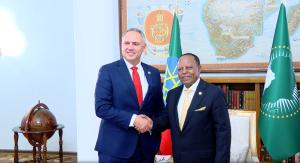
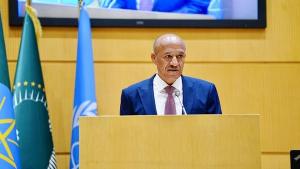
.png)
.jpg)
.png)


.png)

.jpg)
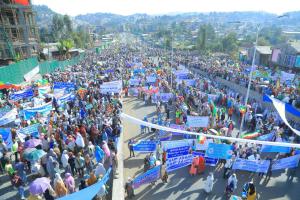
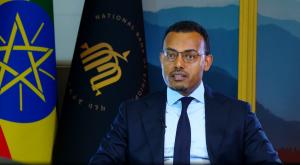
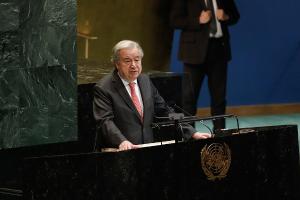
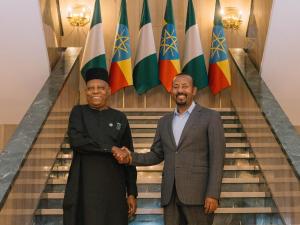
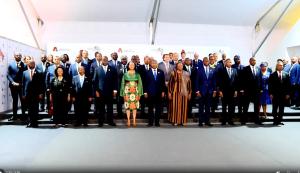
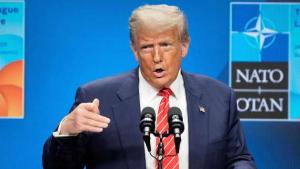
.jpg)
.jpg)
.jpg)
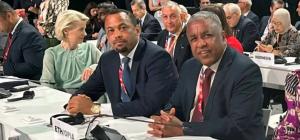
.png)
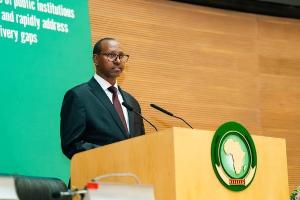
.jpg)
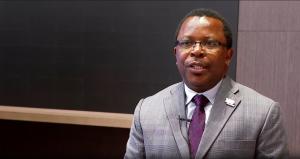
.png)
.jpg)

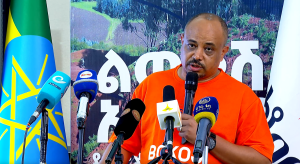
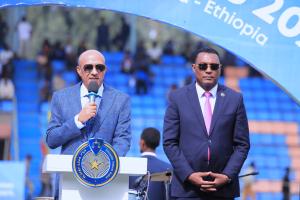



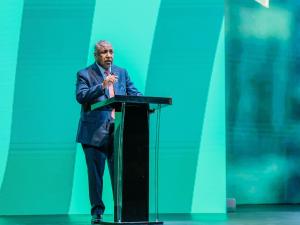
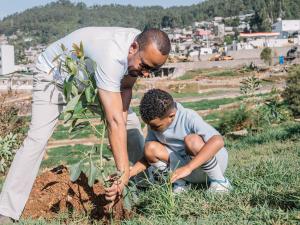

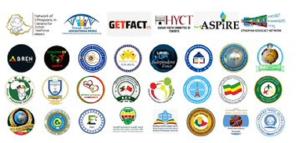

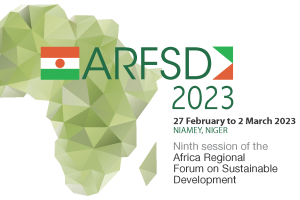
.jpg)
